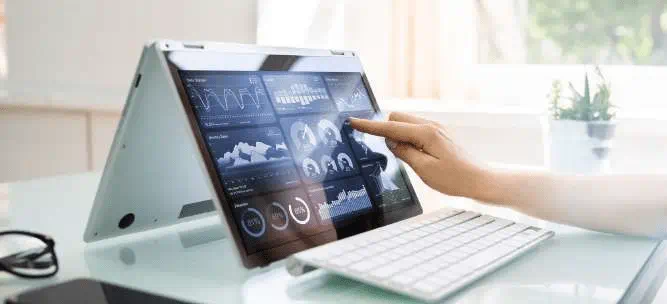
Negotiating with AI
01 सितम्बर 2020

Negotiation is a fundamental business skill—one that is inextricably linked with human emotion and psychology as much as economic calculus. Many companies negotiate countless contracts a year, ranging from facilities rentals, technology licenses, sales, employment or strategic partnerships. One of the biggest challenges, companies face in negotiating contracts is that they span such a wide variety of topics. Even the best-trained negotiators may struggle when parsing through a contract that is outside of their purview.
Artificial intelligence (AI) is capable of performing many tasks that enhance human labour and thinking — so it only stands to reason that it can provide an advantage in the negotiation process as well. There are several levels on which this is happening.
As salespeople or customer service reps interact with customers electronically, they may be able to take advantage of real-time AI recommendations to help guide the engagement or transaction. Rather than monitor singular conversations and interject recommendations on a case-by-case basis, the AI-based negotiation system digests lots of conversational data across lots of sales reps to try to understand where there are coaching opportunities, new training opportunities, value prop improvement opportunities, and product improvement opportunities.
AI can also be applied against transaction or customer relationship management (CRM) data, to sift through responses and engagements to determine where and how companies may be missing opportunities. Also, there are chatbots that can be trained to bargain with customers.
Estonian startup Pactum, which provides an AI-based commercial negotiation tool, was engaged by Walmart to automate negotiations with part of its global supplier network. Pactum's AI-based negotiation tool starts the process by interviewing the customer, recording all the required information surrounding the negotiation, and determining the value for each possible tradeoff in the contract for the customer. Pactum's team then builds the negotiation flows.
Project Debater is the first AI system that can debate humans on complex topics. Project Debater digests massive texts, constructs a well-structured speech on a given topic, delivers it with clarity and purpose, and rebuts its opponent. It can analyze a proposition and automatically highlight the best arguments for and against it, factoring in both logical and emotional impact. Eventually IBM predicts, Project Debater will help people reason by providing compelling, evidence-based arguments and limiting the influence of emotion, bias, or ambiguity.
Perhaps one day, robot lawyers will go forth to negotiate on our behalf. But, in the meantime, A.I. can be used today to improve humans’ negotiation tactics.
Credits : Akhil Handa
Popular Articles
Related Articles










-
Disclaimer
The contents of this article/infographic/picture/video are meant solely for information purposes and do not necessarily reflect the views of Bank of Baroda. The contents are generic in nature and for informational purposes only. It is not a substitute for specific advice in your own circumstances. Bank of Baroda and/ or its Affiliates and its subsidiaries make no representation as to the accuracy; completeness or reliability of any information contained herein or otherwise provided and hereby disclaim any liability with regard to the same. The information is subject to updation, completion, revision, verification and amendment and the same may change materially. The information is not intended for distribution or use by any person in any jurisdiction where such distribution or use would be contrary to law or regulation or would subject Bank of Baroda or its affiliates to any licensing or registration requirements. Bank of Baroda shall not be responsible for any direct/indirect loss or liability incurred by the reader for taking any financial decisions based on the contents and information mentioned. Please consult your financial advisor before making any financial decision.
Micro-services
In the current dynamic universe, companies are finding ad-hoc approach of running continuous upgrades to large monolithic platforms increasingly tedious and inefficient. Progressive organizations can no longer count on the rigid systems that require weeks of rework to support a new business process. Enter Micro-services! It is a way of breaking large software projects into loosely coupled modules, which communicate with each other through simple APIs.
In recent years, adoption of micro-services architecture is becoming a proven success strategy in the software development industry. According to the report by Red Hat, organizations are using micro-services to re-architect their existing applications; as much as the technology being used for brand new applications.
Micro-services offer numerous benefits for application architects and development teams. These include flexibility around implementation technology, scalability and cloud readiness. These benefits align well with the growing demand of a new system that can adapt to the demands of digital business in highly competitive ecosystems. For instance, early adopters like Airbnb, Disney, Dropbox, GE, Goldman Sachs and Twitter have seen development lead times cut by as much as 75 percent, thanks to the adoption of micro-services.
This trend is increasingly being adopted by Bigtechs as well. For example, Microsoft has opened up its Service Fabric platform which is a distributed systems platform to package, deploy and manage scalable and reliable micro-services. Similarly, IBM, Google and Lyft have teamed up to form Istio, an open technology that provides a way for developers to connect, manage and secure networks of different micro-services, regardless of platform, source or vendor. Apart from this, California based Nginx which supports the operation of around 450 million global websites including those of Netflix, Instagram and Pinterest, has set up shop in Australia to support companies embracing micro-services.
Recognizing the need to deliver value to customers faster, many banks are seizing the opportunity to implement micro-services architecture. By implementing such innovative architecture, Ubank created Australia's first home loan application chatbot, innovating and improving customer experience. Similarly, UK based digital bank Monzo is also using cloud and micro-services architecture to develop back end structure.
Micro-services can deliver better agility and scalability advantages than any other archetype. Several vendors are developing frameworks and platforms that simplify adoption of the micro-services architecture. However, we believe it will take some time for micro-services to evolve into complete and robust mainstream platform
Credits : Akhil Handa
Parking Payments
Dear Reader,
Increasing adoption of integrated automated solutions coupled with the advancements in wireless technologies are expected to drive the growth of smart parking market. Major technologies used for the deployment of efficient systems include sensing devices, machine-to-machine (M2M) communication, smart parking meters, data analytics, mobile apps for e-reservation of slots and online payments.
According to Brand Essence Research Report, Global Smart Parking Market was valued at USD 5.62 Billion in 2018 and expected to reach USD 12.83 Billion by 2025 with a CAGR of 12.5% over the forecast period.
In recent years, parking payments has drawn the attention of many FinTechs and digital payment solution providers. In India, National Payments Corporation of India (NPCI) has introduced an interoperable system so that FASTags can be used to pay parking fees at malls, airports and other private parking lots across key metros - Delhi, Mumbai, Chennai, and Bengaluru.
Such payments will be contactless, which assumes significance in the wake of Corona virus pandemic. The NETC FASTag solution will work both as post-paid and pre-paid solutions for securing parking at a parking plaza. There will be no additional cost to customers with respect to the parking fee, other than the one-time purchase cost of the tag. There will also be dedicated FASTag lanes.
In the US, Passport, a transportation software company supports the management of vehicle interactions with streets and sidewalks, through its robust digital parking payment technology. Passport supports over 1,000 clients of all sizes in North America and has processed more than $2B mobility transactions to date.
Similarly, ParkMobile is another leading provider of smart parking and mobility solutions in North America, using a contactless approach to help people easily find, reserve and pay for parking on their mobile devices.
Last month, Google announced entering into an advanced partnership with both Passport and ParkMobile. The parking payment feature can be availed in over 400 US cities, including Boston, Chicago, Houston, Los Angeles, New York and Washington DC.
Simply tap on the 'Pay for Parking' button that appears as you near your destination. Then enter your meter number, the amount of time you want to park for, and tap 'Pay'. The payment will be processed through Google Pay application.
Google Maps, along with Passport, is in the process of expanding the ability to pay for transit fares for "over 80 transit agencies" around the world, allowing the users to plan their trips, buy tickets and start riding without needing to toggle between multiple apps.
We believe that the increased interest around the parking payment technology will provide an opportunity for IoT and mobility players to up their game and significantly increase revenue generation, to get back on track in the wake of the pandemic.
Credits : Akhil Handa,Aparna Anand


Leave a Comment
Thanks for submitting your details.